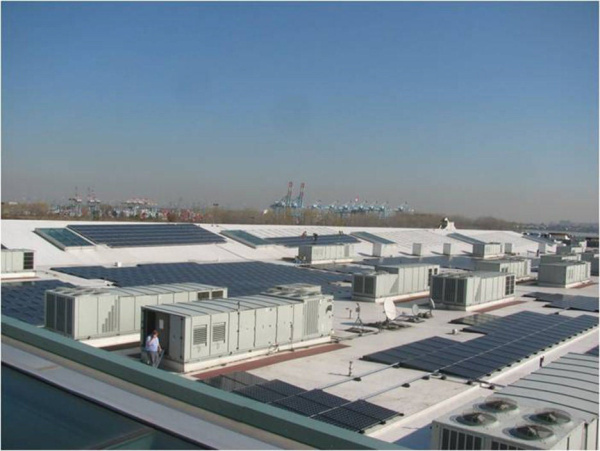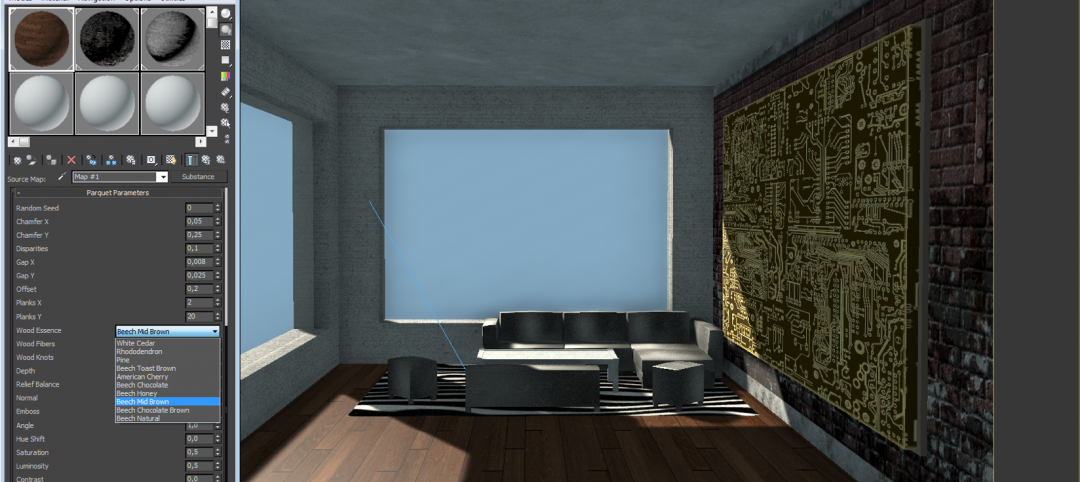Glimcher Realty Trust announced the completion of a 4.8-megawatt SunPower rooftop solar system at Jersey Gardens in Elizabeth, N.J. The project, which is among the largest rooftop systems in North America, broke ground in June 2011 and began producing power this week.
Anchored by tenants like Gap Outlet, H&M, Lord & Taylor Outlet, Neiman Marcus Last Call, Nike Factory Store and Saks Fifth Avenue Off 5th, Jersey Gardens is the largest outlet mall in New Jersey. The mall was built by Glimcher Realty Trust in 1999 on the site of a former landfill.
The project is comprised of more than 15,000 high efficiency SunPower panels, and generates approximately the amount of power required for 564 New Jersey homes. It is expected to generate the equivalent of 11 percent of the mall’s electrical demand.
The solar power system at Jersey Gardens was made possible through a partnership with Gerding Edlen Development, Inc. and Gerding Edlen Sustainable Solutions.
This project is the result of a power purchase agreement between Glimcher Realty Trust and Clean Focus Corporation. Under the agreement, Clean Focus financed and owns the system. All solar renewable energy credits and environmental benefits associated with the system will be owned by Clean Focus. Jersey Gardens will buy the electricity at a predetermined, predictable price, providing a long-term hedge against rising power prices with no initial capital investment.
The Jersey Gardens solar system was designed and installed by SunPower Corp., which will also operate and maintain the system. The system uses the SunPowerT5 Solar Roof Tile, which is the solar industry’s first non-penetrating rooftop product that combines a high-efficiency SunPower solar panel, frame and mounting system into a single, pre-engineered unit. Tilted at a 5-degree angle, the system will approximately double the energy generated per square meter compared to other systems that are mounted flat onto commercial rooftops. BD+C
Related Stories
| Dec 13, 2010
Energy efficiency No. 1 priority for commercial office tenants
Green building initiatives are a key influencer when tenants decide to sign a commercial real estate lease, according to a survey by GE Capital Real Estate. The survey, which was conducted over the past year and included more than 2,220 office tenants in the U.S., Canada, France, Germany, Sweden, the UK, Spain, and Japan, shows that energy efficiency remains the No. 1 priority in most countries. Also ranking near the top: waste reduction programs and indoor air.
| Dec 7, 2010
Are green building RFPs more important than contracts?
The Request for Proposal (RFP) process is key to managing a successful LEED project, according to Green Building Law Update. While most people think a contract is the key element to a successful construction project, successfully managing a LEED project requires a clear RFP that addresses many of the problems that can lead to litigation.
| Dec 7, 2010
Blue is the future of green design
Blue design creates places that are not just neutral, but actually add back to the world and is the future of sustainable design and architecture, according to an interview with Paul Eagle, managing director of Perkins+Will, New York; and Janice Barnes, principal at the firm and global discipline leader for planning and strategies.
| Dec 7, 2010
Green building thrives in shaky economy
Green building’s momentum hasn’t been stopped by the economic recession and will keep speeding through the recovery, while at the same time building owners are looking to go green more for economic reasons than environmental ones. Green building has grown 50% in the past two years; total construction starts have shrunk 26% over the same time period, according to “Green Outlook 2011” report. The green-building sector is expected to nearly triple by 2015, representing as much as $145 billion in new construction activity.
| Dec 7, 2010
USGBC: Wood-certification benchmarks fail to pass
The proposed Forest Certification Benchmark to determine when wood-certification groups would have their certification qualify for points in the LEED rating systemdid not pass the USGBC member ballot. As a result, the Certified Wood credit in LEED will remain as it is currently written. To date, only wood certified by the Forest Stewardship Council qualifies for a point in the LEED, while other organizations, such as the Sustainable Forestry Initiative, the Canadian Standards Association, and the American Tree Farm System, are excluded.
| Dec 7, 2010
Prospects for multifamily sector improve greatly
The multifamily sector is showing signs of a real recovery, with nearly 22,000 new apartment units delivered to the market. Net absorption in the third quarter surged by 94,000 units, dropping the national vacancy rate from 7.8% to 7.1%, one of the largest quarterly drops on record, and rents increased for the second quarter in a row.
| Dec 7, 2010
Hot rumor: Norman Foster designing Apple’s new campus
Lord Norman Foster, reportedly has been selected to design Apple’s new campus in Cupertino, Calif. If the news is true, Foster is a good match for Apple say experts. Foster built his celebrity by marrying big gestures to technological wizardry. And, unlike some starchitects, he has glommed onto the environmental revolution—something Apple has made a point of embracing, too.
| Dec 7, 2010
10 megacities of the near future
With Beijing, Shanghai, and Mumbai already on the global radar, where can the next wave of construction be found? Far beyond China, India, and even Brazil it’s predicted. The world’s next future megacities could include Istanbul, Turkey; Ho Chi Minh City, Vietnam; and Khartoum, Sudan, among others. Read about these emerging and little-known behemoths.








